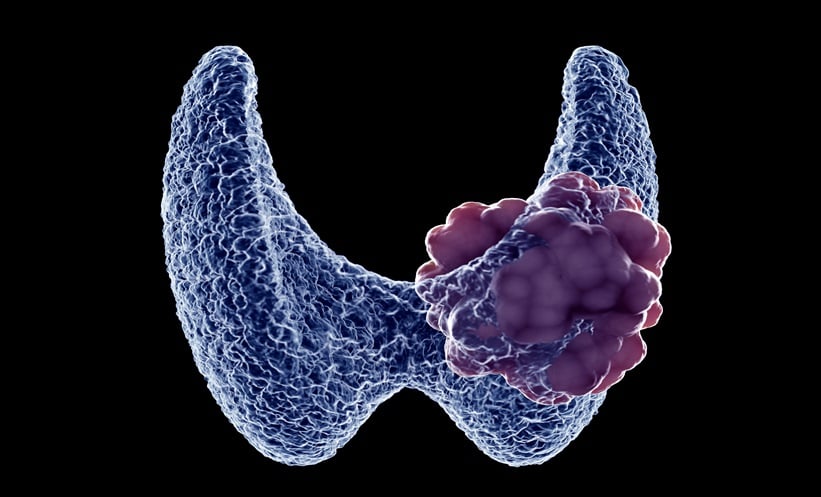VARIANTS in the RAS gene appear in a range of thyroid tumours with differing malignancy rates. Researchers from Sinai Health, Toronto, Canada and the University of Toronto, Canada conducted a prospective diagnostic study to explore whether differences in patient’s RAS variants reflected variance in the status of their tumours.
Papillary thyroid cancer is primarily diagnosed through ultrasonography and fine-needle aspiration biopsy, however, approximately 30% of FNAs yield indeterminate results, and 10% are nondiagnostic. Consequently, many patients undergo unnecessary diagnostic surgeries, with only 20-30% of indeterminate nodules being malignant.
RAS gene variants are prevalent in thyroid cancer, with NRAS being the most common, followed by HRAS and KRAS. The study, analysed thyroid tumour tissues and nodule biopsies from 620 patients, 75.8% of whom were female, between 2016 and 2022, for RAS genomic variants and also the presence of BRAF V600E and TERT promoter variants.
Whilst assays for RAS variants often provide inconclusive results, that consequently lead to diagnostic surgeries, when used in conjunction with tests for BRAF and TERT promoter variants, they could provide a more definitive cancer diagnosis.
The study found that 20.3% of surgical tumours had RAS variants, with NRAS being the most common. RAS variants were present in 22.6% of malignant neoplasms and showed a significant association with certain tumour characteristics. BRAF V600E and TERT promoter variants were found in 50.9% and 16.2% of carcinomas, respectively. The combination of RAS, BRAF V600E, and TERT variants improved the sensitivity of distinguishing malignant neoplasms from benign and non-invasive tumours.
The researchers concluded that differences in RAS, combined with BRAF V600E and TERT promoter variants, can lead to more accurate cancer diagnoses, however, future research should aim to validate these findings in larger, multicentre studies.
Katie Wright, EMJ
Reference
Fu G et al. Discriminating interpatient variabilities of RAS gene variants for precision detection of thyroid cancer. JAMA Netw Open. 2024;7(5):e2411919.








